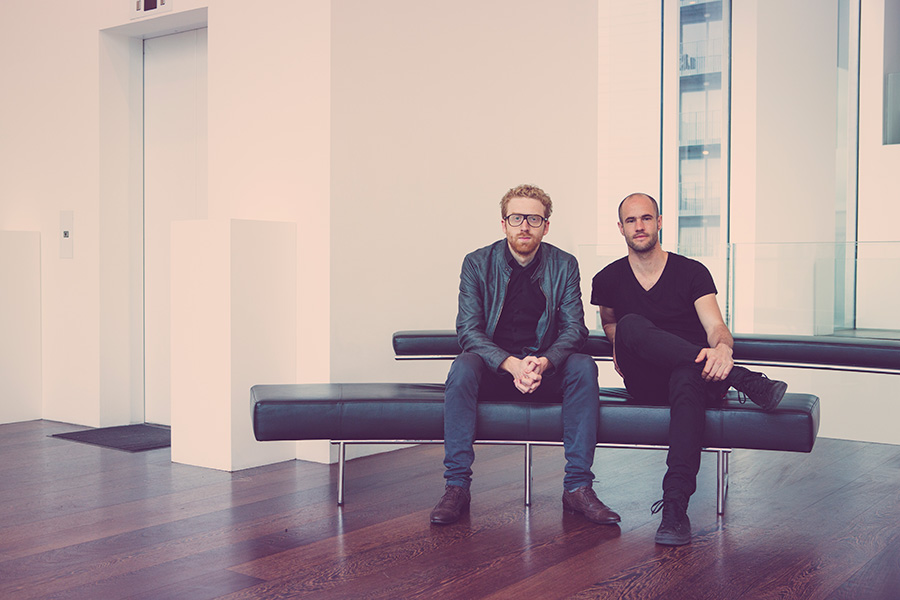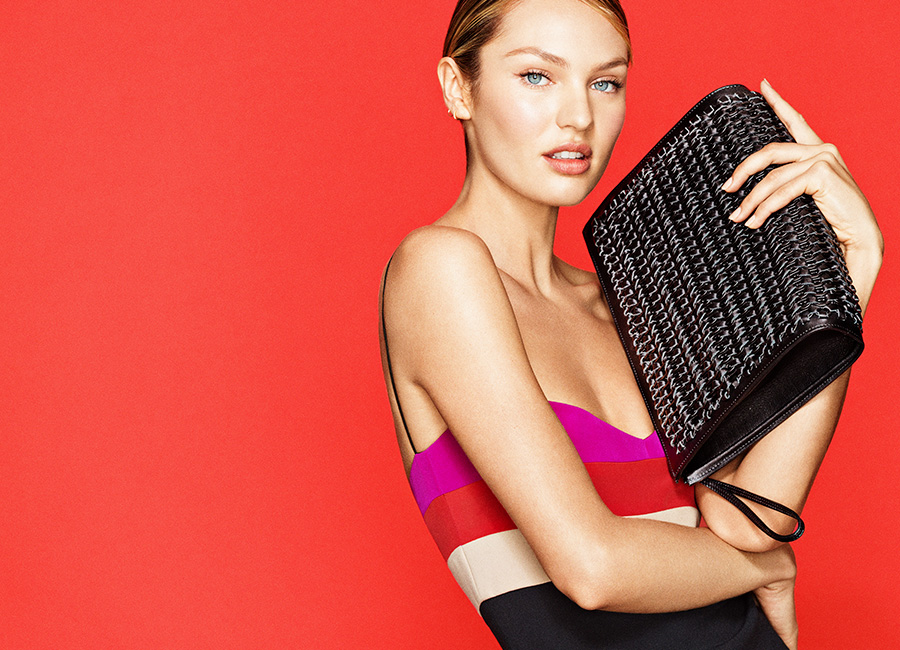Bottletop has taken an eye for detail, combined it with community craft and projected it into the realm of luxury. Oliver Wayman and Cameron Saul have unearthed skills from different cultures, that use different waste materials and refined them for an audience who wouldn’t normally come across these beautiful pieces.
“We set out to redefine the concept of luxury,” says Oliver Wayman, co-founder of Bottletop. London-based Wayman and business partner Cameron Saul (above) decided that the hidden production techniques they discovered, and created by hand are objects of beauty and pride for both the artisan and consumer alike. The creation of fashion company Bottletop in 2012 not only saw these techniques coming to light, but also some of the most highly skilled artisans from around the world being set up in training programs that now support the artisans and their families.
It all began in the early 2000s when Saul was teaching sexual health education in Uganda as part of a charity project. He came across a bag made by locals, made from discarded bottle caps on a wire frame. Saul’s father Roger is the founder of luxury fashion brand Mulberry and he immediately recognized the potential for a unique fashion accessory when his son approached him with the idea. The design collaboration resulted in the recycled bottletop handbag lined with the finest Mulberry leather.
It became the bestselling bag of that season, sold internationally and created a sensation among the international fashion press. It also generated local employement opportunities in Uganda and raised vital funds for grassroots education projects.

Meanwhile, Wayman had discovered a silver chain mail bag in Brazil, made from upcycled aluminium ring pulls, held together by crotchet. He was amazed at the distinctly 1970s design that reminded him of Spanish fashion designer Paco Rabanne. The bestselling ‘Bellani’ handbag followed (named after Wayman’s mother who perfected the technique) and generated a new wave of international publicity. This paved the way for the establishment of the Bottletop collection, now an independent fashion label with some of their handbag creations selling anywhere upwards of $2,000.
The Bottletop Foundation, which preceded the establishment of the fashion brand by ten years, has a history of nurturing and educating at-risk youth. Started by Saul in 2002, it now empowers young people in Malawi, Mozambique, Rwanda, Brazil and the U.K., by making them aware of sensitive health issues such as HIV/AIDS, drug abuse and teenage pregnancy. Unlike many foundations that bring donors onboard, the Bottletop Foundation is 100 percent funded by the Bottletop fashion collection.
More than 35,000 young people benefit from the foundation each year through creative programs that engage the audience through film, newspapers, drama and music. Wayman and Saul select their projects based upon their demonstrated potential to equip young people with the skills and attitudes to be agents of change in their own lives, and their wider communities. To keep the charitable work alive in the developing world, Wayman and Saul have developed a range of luxury goods that are sold to customers who in many instances are living a world apart.
“Bottletop has shown what’s possible; what can be re-used and re-worked,” says Wayman “We’ve taken a raw material and made people see it differently. The fashion-buying public don’t see what is effectively a waste material, they see a coveted fashion item,” he says. In the early years, the pair started working with various corporates in the U.K. on their production processes but eventually established their our own atelier in one of the poorest areas in Brazil, making samples and training people from scratch.
“We provided the materials and empowered the community by teaching them the skills needed to make these products,” says Wayman. Surprised by the positive reaction to their venture, Wayman and Saul decided to scale up their idea into a fully fledged fashion brand. To do this they needed to sell a small portion of the company, which proved transformational as it opened the door to wider opportunities.
The ex accessory designer for Louis Vuitton, Vincent du Sartel, donated a collection to Bottletop and Iain Renwick, the ex CEO of Liberty department stores, was secured as company chairman. “We really managed to attract fantastic people to help in key parts of our business,” recalls Wayman. “We’ve also done some really interesting collaborations, most recently with Narciso Rodriguez, a U.S. designer who designed Michelle Obama’s inauguration dress. Rodriguez used his design team alongside our own to come up with some really interesting cross-cultural products, which wouldn’t have existed otherwise.”
Collaborating with established and respected designers is a crucial ingredient of the Bottletop business plan, giving credibility to the brand and firmly planting it within the luxury sector. “Once people find out what raw materials we actually use and how we make them, we run the risk of people devaluing our products,” says Wayman. “The pieces won’t have the aspirational quality they deserve, so pairing with established and recognized designers has really helped position the brand in the right place.”
“Quality control is one of our biggest challenges but it’s incredibly fulfilling when you’re now selling these bags in places like Harrods and other renowned department stores,” says Wayman. We’re sitting alongside some of the world’s most established fashion brands in stores, yet our products are made in some of the most challenging environments by some of the poorest people.” “Coco Chanel once said that luxury doesn’t have to be the opposite of poverty, but the opposite of vulgarity.
We focus on attention to detail and recognize the quality and handwork. This is key for us, especially in a world full of throwaway fashion stores which cause untold damage to the environment and promote unfair labor practice in developing countries. Making things well to last a long time – that’s luxury,” says Wayman. With ambitious plans to launch in Japan, Canada and the U.S. Bottletop is using existing capital for growth, but are on a good trajectory to become profitable within the next two years, according to Wayman. Online sales account for around about 30 percent of business and wholesales to department stores accounts for the rest.
Wayman and Saul both almost gave up when they first saw the poverty around them in Africa and Latin America over 12 years ago. Creative grit has kept them going and where most people would see only despair, the pair saw opportunity. As Thomas Edison once said, “We often miss opportunity because it’s dressed in overalls and looks like work.”




































